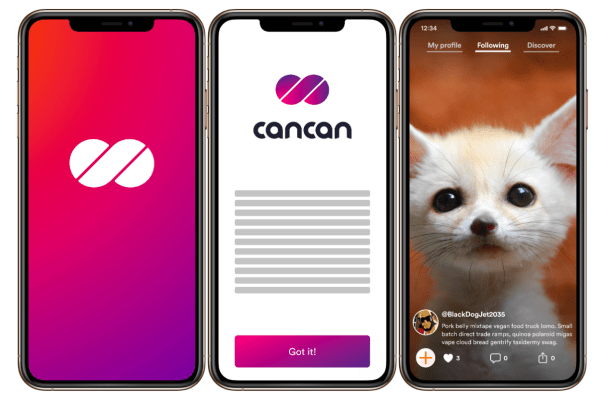Dfinity appeared in 2018, amid the flurry of investments in the blockchain space, It raised $102 million in funding at a $2 billion valuation in a round jointly led by Andreessen Horowitz and Polychain Capital, along with other investors including KR1. I must admit that at the time it appeared to all intents and purposes as if it would be yet another attempt to replace Ethereuem. Or at least something similar. But then something odd happened. It started behaving like an actual software company.
In January this year it didn’t talk about blockchain at all, but instead demonstrated an open social network called “LinkedUp” sort of open version of LinkedIn. The demonstration didn’t go live and technically-speaking it was under-whelming until you realized it wasn’t running or any server, and performed faster than a native mobile app. Dfinity, it turned out, wasn’t a traditional blockchain startup, but was taking a leaf out of that world’s championing of the move towards decentralization.
In fact, it was building its so-called “Internet Computer”: a decentralized and non-proprietary network to run the next generation of ‘mega-applications’.
Today it announced that the “Internet Computer” is now open to third-party developers and entrepreneurs to build that next generation. The vision is to “reboot” the internet in a way that destroys the ability to create virtual monopolies like Facebook, LinkedIn, Instagram, and WhatsApp.
As its next technical demonstration, it launched “CanCan”, a TikTok-like app that will run in a browser (though it is not publicly available as such) and which is not owned by a company. The idea is that anyone could build their own TikTok.
The tantalizing part of Dfinity’s ideas is that because of the nature of the architecture, apps like CanCan can be built with less than 1,000 lines of code. Facebook, to take an example, contains over 62 million lines of code.
To achieve this, Dfinity is drawing on the work of Andreas Rossberg, co-creator of WebAssembly, who has now created Motoko, a new programming language optimized for Dfinity’s Internet Computer.
The Internet Computer’s serverless architecture allows the Internet to natively host software and services, eliminating — claims Dfinity — the need for proprietary cloud services. Without web servers, databases, and firewalls, developers can create powerful software much more quickly, and that software then runs far faster than normal.
Dominic Williams, founder and Chief Scientist at DFINITY said in a statement: “One of the biggest problems emerging in technology is the monopolization of the internet by Big Tech — companies that have consolidated near-total control over our technologies. They collect vast amounts of information about us that they sell for profit and leverage to amass greater market share, and acquire or bulldoze rivals at an alarming rate… The Internet Computer provides a means to reboot the internet — creating a public alternative to proprietary cloud infrastructure. It will empower the next-generation of developers and entrepreneurs to take on Big Tech with open internet services. It aims to bring the internet back to its free and open roots — not dominated by a handful of corporations.”
This “Tungsten” release of the Internet Computer means third-party developers and entrepreneurs, will be able to start kicking the tyres on this platform and start spitting out web apps and even smartphone apps.
Projects currently being built include a decentralized payment application and a “pan-industry platform for luxury goods”, whatever that is. Successful and promising applications may also benefit from Beacon Fund, an ecosystem fund stewarded by the DFINITY Foundation and Polychain Capital that aims to support ‘DeFi’ apps and open internet services built on the Internet Computer.
Interested developers and enterprises can submit an application to access the Internet Computer starting July 1, 2020 via dfinity.org.
